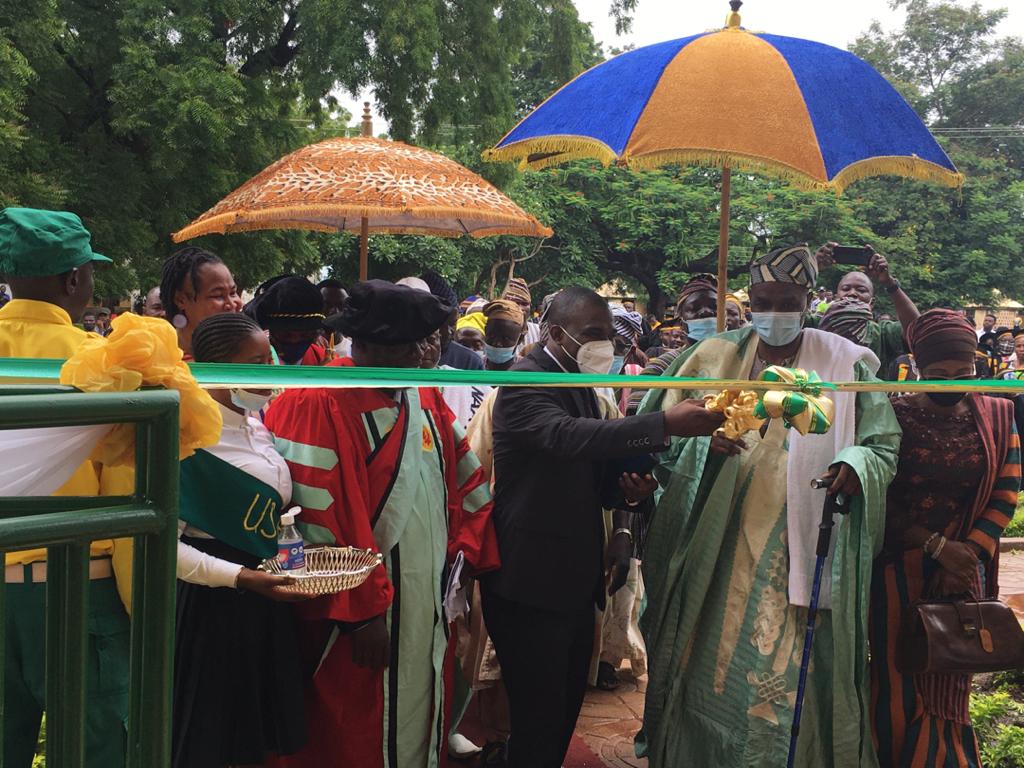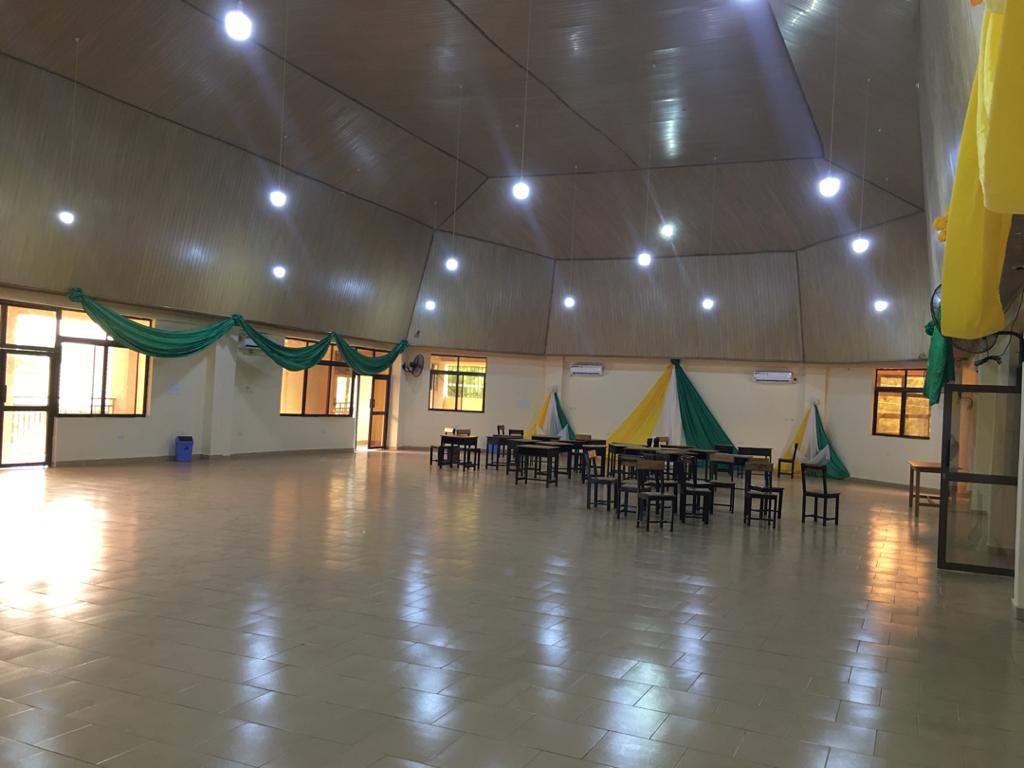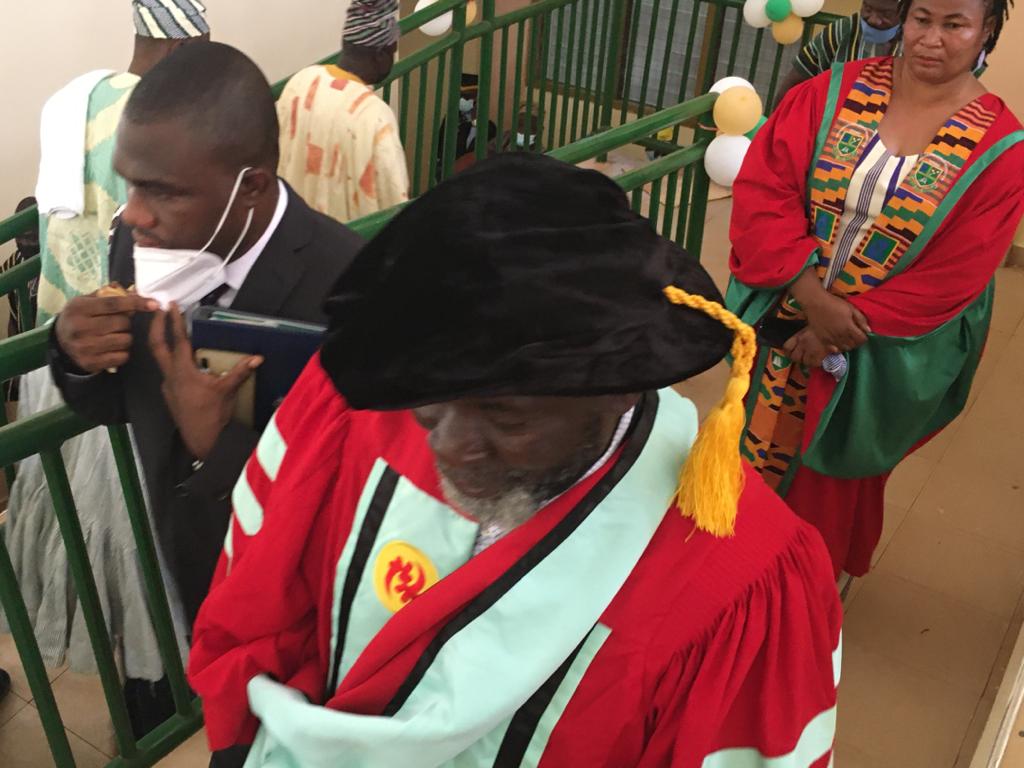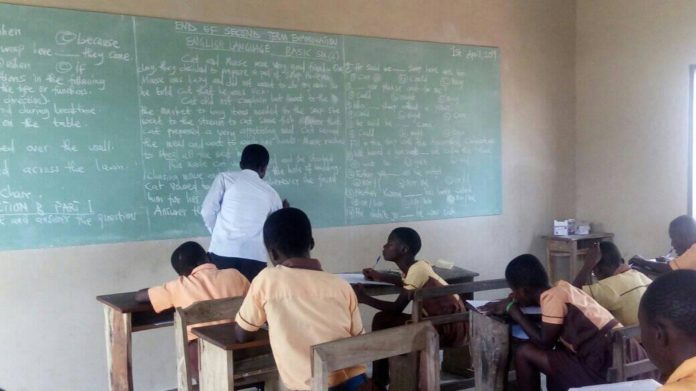The Education Minister, Dr Yaw Osei Adutwum, has stressed government’s intention to conduct a national standardised test for pupils in primary 4 across the country to assess them in numeracy and literacy.
In a speech read on his behalf by a representative, Dr Eric Nkansah, the minister noted that the exercise will help the government plan intervention programs to address the shortfall of pupils.
A study conducted by the Early Grade Reading Assessment (EGRAM) and the Early Mathematics Assessment (EGMA) has revealed that two per cent of pupils in primary 2 in the country read with fluency and comprehension.

The study also showed that the pupils do not have the foundational skills required to grasp basic concepts in mathematics.
Dr Nkansah, who was speaking at the 8th congregation and commissioning a new auditorium/lecture hall complex of the Bagabaga College of Education, said the ministry is taking steps to reposition the entire educational system to equip the Ghanaian student with 21-century skills.
He further noted that the said skills are what the country needs to compete favourably in the 4th revolution.
The country, he explained, will pursue this through science, technology, engineering, and mathematics.

Dr Nkansah stated that the gross tertiary enrollment ratio currently stands at 18.84 per cent, a figure that fell short of the targeted 25 per cent envisaged by the education strategic plan, adding that the figure has a significant effect on the production of the quality workforce and the country’s GDP growth.
According to him, a study conducted by the organisation for Economic Cooperation and Development (OECD) in 2012 showed that 60% of GDP in France, Norway, Switzerland, among others, are contributed by those who have some level of tertiary education.
He, however, noted that the said countries had as of 2012 a gross tertiary enrollment ratio of more than 55%, an example the country needs to emulate.

He observed that the high gross tertiary enrollment ratio is a critical driver in the socio-economic transformation of any country, reiterating Akuffo Addo’s administration commitment to increasing the gross tertiary enrollment ratio from the current 18.84% to 20% by 2031.
Again, Dr Nkansah said the college's aid education will play a pivotal role in this pursuit, noting that the Ministry of Education has also made progress in establishing an open university in Ghana, which will help increase the gross tertiary education enrollment ratio.
Latest Stories
-
Asantehene assures Kumasi Zoo won’t be relocated
17 minutes -
Results from Ablekuma North rerun trickle in
23 minutes -
TECNO kicks off New Era with SPARK 40 Series and CAF Partnership
41 minutes -
Justice Blay apologizes for controversial comments on radio interview
1 hour -
Minority condemns violence, police inaction in Ablekuma North rerun
2 hours -
Ablekuma North rerun: Polls close, sorting and counting underway
2 hours -
“We neither sleep nor slumber,” says NPP’s Akua Afriyie as polls close in Ablekuma North rerun
2 hours -
GJA demands transparent probe over police officer’s assault on journalist at Ablekuma North
2 hours -
NPP Deputy Organiser Chris Asamoah beaten to pulp during Ablekuma North polls
2 hours -
Ablekuma North rerun: I don’t feel sorry for Hawa Koomson, she deserves it – Hannah Bissiw
2 hours -
Flush the Crisis: Why Ghana can’t wait until 2103 to Fix the Toilet crisis
2 hours -
Dr. Hanna Bissiw justifies attack on Hawa Koomson, says “violence begets violence”
2 hours -
GJA condemns assault on journalists during Ablekuma North rerun
3 hours -
Diana Hamilton celebrates God’s goodness in new single ‘Me Nyankopon Papabi’
3 hours -
Exposed: Face of thug who attacked JOYNEWS journalist at Ablekuma North rerun
3 hours

